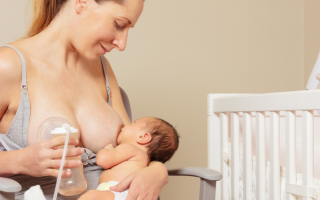As a new mom, you’re probably feeling a mix of emotions – happiness, exhaustion, and maybe even a little bit of anxiety. It’s normal to feel this way after giving birth, but for some women, these emotions can be more intense and persist for longer periods of time. This is known as postpartum depression (PPD), and it’s important to know that you’re not alone and that help is available.
First, let’s talk about what PPD is (and what it isn’t). PPD is a type of depression that can occur in the weeks or months following childbirth. It’s not the same as the “baby blues,” which is a normal and usually temporary feeling of sadness or irritability that many women experience after giving birth. PPD is more severe and can interfere with your ability to care for yourself and your baby. Symptoms of PPD can include feelings of sadness, hopelessness, and a lack of energy or interest in activities you used to enjoy. You may also feel anxious, irritable, or overwhelmed, and you may have difficulty bonding with your baby or feeling like a good mom.
So, what causes PPD? The truth is that we don’t know for sure. It’s likely that PPD is caused by a combination of factors, including hormonal changes, physical changes, and lifestyle changes that come with having a newborn. PPD can also be triggered by previous mental health issues or a family history of depression. The postpartum period can be a time of great change and adjustment, and it’s not uncommon for new moms to feel overwhelmed or stressed. However, if these feelings persist or interfere with your daily life, it’s important to seek help.
If you’re experiencing PPD, it’s important to know that you’re not alone and that help is available. Here are a few things you can do to get the help you need:
- Talk to your doctor: Your healthcare provider is a great resource for understanding your options and getting the help you need. They can assess your symptoms and recommend treatment options, such as therapy or medication. Don’t be afraid to speak up and ask for help. Your doctor is there to support you and help you feel your best.
- Seek support: PPD can be isolating, so it’s important to reach out to friends, family, and support groups for help. You can also talk to other moms who have experienced PPD – they can be a great source of support and understanding. It’s okay to admit that you’re struggling and to ask for help. You don’t have to do it all on your own.
- Take care of yourself: It’s important to prioritize your own self-care when you’re struggling with PPD. This might mean getting enough sleep, eating well, and finding time to relax and do things you enjoy. It’s okay to take a break and do something for yourself – it’s not selfish, it’s necessary.
- Seek professional help: If you’re feeling overwhelmed and unable to cope, it’s important to seek professional help. This can include therapy, counseling, or medication. A mental health professional can help you work through your feelings and develop coping strategies to manage your PPD. Don’t be afraid to seek help – it’s a sign of strength, not weakness.
In conclusion, PPD is a serious and common condition that can affect new moms. It’s important to know that you’re not alone and that help is available. If you’re struggling with PPD, don’t be afraid to reach out for help. Talk to your doctor, seek support from friends and family, take care of yourself, and seek professional help if needed. With the right treatment, you can overcome PPD and be the best mom you can be. Remember, you’re not alone – there are people and resources available to support you through this challenging time. Don’t be afraid to ask for help and to prioritize your own well-being. You deserve it.




